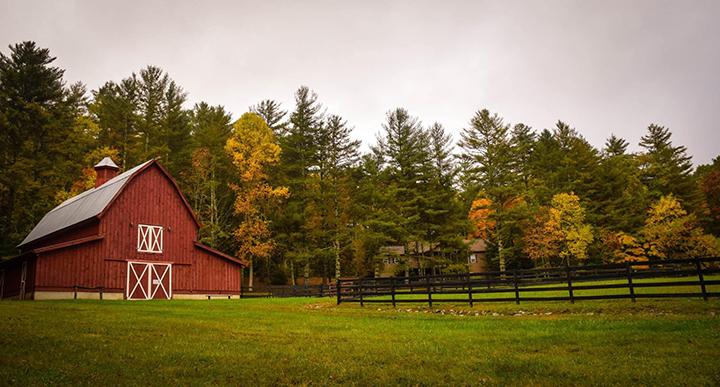| Issue #73 • January/February, 2002 |
There are three kinds of people who read this magazine: those already living in the country, those actively preparing and planning to make the move to the country, and lastly those who fantasize about moving but will never actually do it. Unashamedly I am the second kind, the one who is actively planning the move and is doing a great deal about it. Here are some of the things I’ve done or am doing to make this transition possible someday.
1. Debt free
Yes, it is a dream for me and I believe it can become a reality one day. Just imagine moving to the country laden with debts: credit cards, mortgage, car loans, student loan, boat loan, RV loanyou get the picture. Anyone who hopes to move to the country and still live like a city dweller with all this baggage is fooling himself. Even if he can make the move, it would neither be practical nor enjoyable. You’ve got to have a plan to rid yourself of these debts and begin to save.
|
Yes, it will take discipline and iron will, and yes it can be achieved. Here is something I read today while at a restaurant: “Happy is the man who makes sacrifices to fulfill his dreams.” For sure there will be sacrifices and efforts; dreams don’t come easily or cheaply. Don’t get me wrong, I am not totally debt free. But I am working hard to achieve this end, say, in a few years. And this is how I started:
About five years ago when my wife and I started thinking about moving to the country someday, we were also in the position to buy our first house. Instead of buying a single family home, we bought a triplex. While we lived there, the rental income from the other units nearly paid the entire mortgage each month. We were able to save my income and live on my wife’s salary.
A year and a half later, we had saved enough to buy our second home. (We kept the triplexthe rental income pays all expenses, and we look forward to one day selling it, pocketing the appreciated value.) This time, however, we wanted to live in a single family home because we were expecting our first child. We had also decided that once the child was born my wife would quit her job. We bought a nice Cape Cod-style house just a few blocks from the triplex. We got it for a very reasonable price because it had a very ugly kichen with dreadful yellow linoleum, and we bought it directly from the owner. The kitchen became a good project for us, and now my wife loves her “dream kitchen.”
Two weeks after we moved in, our first child, Abriel, was born. Nine months later, we still had enough money left over to buy a fixer-upper. We got a special mortgage called 203K that financed the renovation costs and based the value on the completed projects. We renovated it and sold it a year later at a handsome profit. With the money from the fixer-upper I built a second house on our lot. We rent out this new house, and the income covers much of our mortgage.
It all sounds pretty easy, doesn’t it. But let me assure you, there was more stress and headaches than you could imagine. But I still think it was worth it because it has brought me several steps closer to fulfilling my dream.
2. Acquire skills
By now you must think that I am quite an entrepreneur and a handy person. Believe me, I am neither. My wife thought I was crazy to take on such projects. You see, I was born and raised in Hong Kong. I had never worked with my hands until a few years ago. Hong Kong is a city of concrete; there was no need for me to learn to fix anything.
When I came to the States at the age of 18, I only spoke a smattering of English and had no skills whatsoever. But I figured that since I was here I might as well learn. When we first bought our fixer-upper, my wife was really doubtful as to how we were going to fix it. The house seemed to be in need of a lot of repairs but I thought it had a good bone to it. Yet I realized that I couldn’t possibly do any of the repairs myself so I hired a friend to help. I didn’t want to deal with contractors, and more importantly I wanted to work alongside someone so I could learn.
For the next few months, we worked together over many weekends. I helped, I watched, and I asked questions. At times I felt like I was an idiot; I couldn’t even do some of the simplest things. Toward the end of the remodeling, my friend bailed out and said he couldn’t spend the weekends to work any longer. I was counting on him, and the 203k loan required all the work to be done soon. I still had to refinish the hardwood floor, paint the whole house inside and out, and do tons of little things.
So I wept. No, I did not. I took a week off work. I went to the rental place and rented a floor sander. I took it to the fixer house and did it. It took me several days to do it. I knew it wasn’t a perfect job because the same friend later told me I did a poor job on the floor. So what, I did it without him. I was proud of myself and later many people complimented me on the floor. About a year later we sold the house for a nice profit. We had wanted to sell it right away, but it didn’t happen. Nobody was interested so we rented it out. During that nine-month period we had more tenants than I’d like to remember. I think it must have been five. Well, being a landlord is another story.
|
As for the house I built on my lot, it was a much better experience for me, though it wasn’t without trials. Again I hired another friend, who was a contractor, to build the house with me because I knew I still had so much to learn. I took three months off work (my second child was born and I took three months parental leave) and started building less than a week after Annika was born. We did most of the work except plumbing, electrical, grading, and a few others. Overall, the experience was very positive and I learned quite a bit about carpentry work.
But some of the nightmares included dealing with the truss company and the electrical contractor. Briefly, the truss company kept sending us wrong trusses. The big truck roared back three times to deliver the correct trusses. At the end, the owner of the truss company refused to give us some of the engineerings for the trusses until we paid in full. But we insisted that the trusses be approved by the city inspector first because of some of the changes the truss company had made. Stalemate. The city inspector came and didn’t question the trusses, the truss company burned to the ground the next day, we paid in full. The end of the truss story and no, we didn’t do it.
As for the electrical work, it was a greater nightmare for us. We did most of the wiring ourselves thinking that we could do it without an electrician. The city came and inspected and demanded that it be done by an electrical contractor. We had no choice but to hire one. It was summer time and we had to scramble to find one. On top of that, the city also demanded a 400-amp meter base because now we have two houses on one large lot.
It ended up costing us over $6000. At the rate of $60 an hour, it took the electrician a whole week to get the wiring done. My wife kept commenting that the electrician parked his van far away instead of on the driveway in front of the house; he kept walking back and forth to this van the whole day.
Toward the end, the electrician came back to do a little more finish work. When we got a bill for those four or five hours of work, I looked at it carefully and realized that the hourly rate was no longer $60 but $65. I called the owner of the company, who turned out to also be a city commissioner of the city of Gresham. He then told me that he had decided to give his hard working guy a raise so he went ahead and charged me $5 more an hourwithout my knowledge or consent. Typical politician, isn’t it? I raised a stink and got him to lower it back to $60.
Through it all, I learned that if you have determination, you can accomplish many things, but not everything. After building the house along with my friend, I felt confident enough to tackle many projects on my own, including building a covered porch, deck, fences, and many other projects.
3. Acquire tools
Along with acquiring skills, invariably you will acquire tools, and lots of them. When I first began to be interested in tools, I scoured garage sales and bought many cheap tools. But most of them were too cheap to be of any good. Refuse the temptation to buy everything you see at garage sales. Poor quality tools will only add frustration as you tackle a project.
|
What about power tools? Yes, they are handy but they are also expensive. The first power tool I bought was a crosscut saw from a discount warehouse and it only cost me $30. I thought it was a good deal because on the box it boasted of all these features and horsepower. But when I used it the first time, I wasn’t amused. The saw kept binding on the 2 x 4. I knew I wasn’t a skilled craftsman yet, but the saw wasn’t helping either. Failure to cut a 2 x 4 is detrimental to a man’s self image, but eventually I figured out that the saw was partly responsible.
A few months later, strolling down the aisles at Sears, I saw this nice belt sander and it was made completely out of plastic. I couldn’t resist and bought it for $35, thinking that I could sure use a sander. After using it a few times, I quickly sold the sander and the crosscut saw in my own garage sales.
From then on, the adage stuck with me when I considered buying tools: “You get what you pay for.” Yes, I still buy many tools from garage sales and private parties, but I try to stick with name brands such as Porter Cable, Milwaukee, Dewalt, Bosch, and other well known reliable tools. If you don’t, then your tools will come back to haunt you and I can almost hear you swear, “What a piece of junk this is.”
4. Read
Over the last few years I have checked out many how-to books from the library and have bought many useful books. Particularly I enjoy this magazine (Dave told me to say it), Readers’ Digest’s Back to Basics and Do-it-Yourself Manual, Time Life’s Complete Fix-it-Yourself, Wills H. Wagner’s Modern Carpentry, and Orthos’s Basic Wiring Techniques. These are just some of my favorites. Check them out, browse through them. There is a lot of reading material out there and much of it is useful.
A few months ago I was at a garage sale and this guy had two boxes of woodworking magazines for sale. There had to be over 200 magazines in those two boxes. I offered him $10 for each box and he insisted on $15. While I was thinking about it one of the boxes sold. I should have bought them right away. I bought the remaining box and two brand new woodworking books for a dollar each. One of the books was on how to build traditional cabinets; I had just checked it out from the library recently and noticed the original price of $15. Keep looking and reading. Having a good collection of how-to books will be an integral part of your move to the country.
5. Start a garden
I started a garden about a month ago and it was the first for me. A friend came over one Saturday with a tiller and tilled up a patch of grass in a corner of my backyard. We then went to a nursery and picked up some tomato plants, zucchini, eggplant, and peppers. I also bought some bush beans, corn, and snow pea seeds. We fertilized the soil and my friend showed me how to plant them. It wasn’t quite as bad as I thought. I kept the soil moist and most of the plants have grown much since.
Every day I go out in the yard to inspect the plants. I was particularly eager for the seeds to germinate. I looked at them so much that my wife was accusing me of digging them up to inspect the seeds to see if they were doing something. No, I didn’t do it but the idea was very tempting. I know when I live in the country I would like to have a big garden. Realizing that there is so much to learn, I need to start somewhere, and the little patch of garden may as well be the place.
6. Explore options
Once I move to the country, I know I won’t be holding a conventional city job. But somehow I still need to make a living. There are many options out there and each holds a different promise. When I hired the guy to do the grading work for my house, I really liked his trackhoe. What if I buy a machine like this, grade the land with it, and use it to earn a living. That may work.
|
A dear friend of mine, Frank Ferguson, owns a portable sawmill. I have helped him several times to use the mill to cut lumber for people. He makes a decent living with the mill. Not a bad idea.
What about buying a trailer and driving it to commercial or industrial areas to serve hot Chinese food. Since I am such a wonderful Chinese cook (everybody tells me so), I should take advantage of my skill. I also thought of growing a big organic garden and have it u-pick.
What about buying and fixing up houses and reselling them. Or maybe starting a magazine and be my own publisher (bad idea, Dave wouldn’t like it). How about a bed and breakfast, or having people vacation at my country home and charging a fee for it. Well, I am not sure which one I will try but I am sure I will try some of them.
7. Find the place
This is a tough one for me. Both my wife and I came from overseas and none of our relatives live in the States. We have lived in Portland, Oregon for a long time and often feel that this isn’t the best place for raising a family. Land around here is exorbitant and the weather is quite a bit too wet for me. We’ve been to Idaho a few times and like it there. In a few months we will take a trip to Idaho and parts of Montana. I hope this trip will give us a better idea of where we’d like to move.
What I have also done is to surf the Internet about the states or towns I am interested in. But the net is too overwhelming, it has too much information, and it’s hard to narrow things down. I have also looked at books about different states but most of the information is for tourism and they don’t give the whole picture of what a town is about. I guess I will just have to keep talking to people who have lived in different places. Somewhere out there a place is waiting for me, and I want to be ready once I find it.
8. What is important
I need to keep reminding myself why I want to move to the country. Certainly the hopes and dreams of a carefree life enjoying nature, hunting, fishing, and all those things. But these alone are not good enough reasons. The most important reason for me is to raise my family in an environment where my children will grow up appreciating and learning what life has to offer. I want to homeschool them, to expose them to good literature, and teach them to be self-reliant. I want to create an atmosphere where my children will be free from the junks of the world. I don’t want the television, the government, and for that matter, the public schools to raise my kids. They are my children and I am solely responsible for their upbringing.
9. Be realistic
I often get caught up with the excitement of someday moving to the country that I become all too idealistic. I conjure up all these wonderful mental pictures in my mind and often get lost in them. The beautiful sunset over the pond, the ripening garden, the brilliant hues of wildflowers on the hillside, the simple yet elegant farmhouse with wraparound porch. All these are wonderful and should be nurtured because they motivate us to move forward.
|
But along with these dreams and aspirations, there will be tedious, back breaking work and obstacles that at times seem insurmountable. Every dream has its costs if it is to become true. Be realistic and stay focused so you won’t be blown away by the enormous task that lies ahead.
10. Money
It is not how much money you make, rather it is how little you need to spend. If I were to move to the country tomorrow, it would mean that I would have to give up my decent paying city job. Am I ready for that? I will be when I have enough money to buy the land and build my house on it. How dreadful it would be to live in the country and still have to work like city folk. Oh, by the way, did I tell you I hate my job? I often jokingly tell my friends that my career goal is not to have a career. But it isn’t a joke!
This is what I want when I move to the country: I want to be able to build my house from scratch, everything from foundation to kitchen cabinets. And I want to use the lumber harvested from my land to build this house that I am going to live in for the rest of my life. I want to raise most of the food for my family. It means having a big garden and various livestock.
Yes, that’s how I like it and here lies the secret of living in the country. If you save enough money to buy your land and build your house with the trees on your land, and if you raise most of your food stuff, then and only then does it mean that you don’t have to earn a living like city folk. You don’t have to work eight hours a day and commute every day. It means you are your own boss because your livelihood is not dependent on your employment. It depends solely on you. That’s right, no debt, build your house, raise your own food, and the rest is easyI mean, easier.




















With the Lord’s help, we are living our dream. I finally have my old farmhouse, land, a beautiful old barn. Best of all the peace that comes with living in the country.
I am always happy to hear of others who accomplish their dreams.